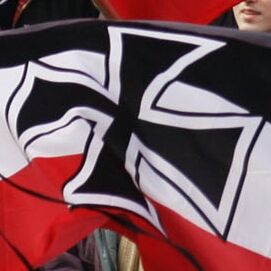
Europeans Searching for Political Alternatives
In Belgian local elections on October 8, a Flemish far-right party won 20 percent of the vote nationwide, and almost 33 percent in the city of Antwerp. Though a particularly stunning result, countries across Europe, to greater or lesser degrees, are seeing a resurgence of neo-Nazi parties. Emanuele Ottolenghi wrote for National Review Online (October 19; emphasis ours):
[T]hese electoral returns reflect a larger European phenomenon: After decades at the margins of political life, extreme right-wing parties are making strong gains across the continent. Despite the fact that their historical roots are oftentimes buried deep in Europe’s dark historical legacy, they enjoy the support of an electorate, which, apart from a small hard-core of loyal voters, is moderate in its political views.
Clearly most Europeans are not eager to don jackboots and embrace neo-Nazi dogma. So why such electoral gains by far-right parties? What is the appeal of these parties? Ottolenghi asks,
Why are increasing numbers of decent, moderate, law-abiding and overall tolerant citizens of Europe voting for parties that have an extreme past, a militant rhetoric, and a political agenda that is sometimes dubious, sometimes ambiguous, and never entirely committed to liberal democratic values?
Ottolenghi puts it down to the increasing concern of Europeans over Muslim immigration: “The answer is a growing anxiety among the public for the future of Europe in light of the growth of Muslim communities on the continent.”
Europeans are worried about where their continent is headed. They fear a gradual, unremitting Muslim offensive that will destroy European identity and also cost them economically. Muslim acts of violence resulting from the Danish cartoon incident and more recently Pope Benedict xvi’s speech confirm the fears of many Europeans. For many, Muslim attacks on embassies, churches, priests and nuns—and anyone who dares speak out against Islam—not to mention the spread of Islamic rituals such as honor killings, are “a sign that a strong response is in high order” (ibid.).
If they vote for the extremists, it is not necessarily because they have become extreme, but because the parties at the political center, which should best interpret this anxiety and give it concrete political expression, are paralyzed by political correctness, fear of antagonizing a growing Muslim electorate, or simply too naive to understand what is at stake. On the left, things are no better. …
[W]here elites and intellectuals see multiculturalism, electoral support, and revolutionary zeal, an increasing number of people see a threat to their national values, heritage, and culture, not to mention jobs and resources. After all, it is the lower-middle class and the working class that compete with immigrants for jobs, welfare benefits, and cheap housing. It is among those classes that the sense of national belonging and religious devotion are still at their strongest. … [T]he cultural and religious dimension of this clash only compound the phenomenon.
This is another sign that Europe is beginning to cry out for strong leadership and solutions, making it ripe for the rise of a demagogue. It also shows how easily, given the right political and economic circumstances, a populace can embrace extremism, or a dictator. European history—even relatively recent history—is full of such examples.
As Ottolenghi warned,
Europe after all has a historical precedent it would be foolish to ignore: In the 1920s, the political center gradually lost power—and control of the situation—under the double assault of left-wing and right-wing extremisms. Back then that situation was largely dependent on a drastic economic downturn, which only intensified the ideological struggle. …
The recent Belgian elections are but a warning. More is to come.
